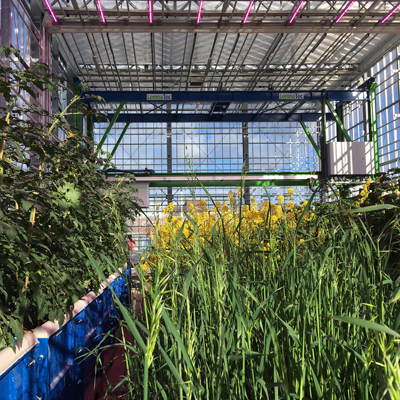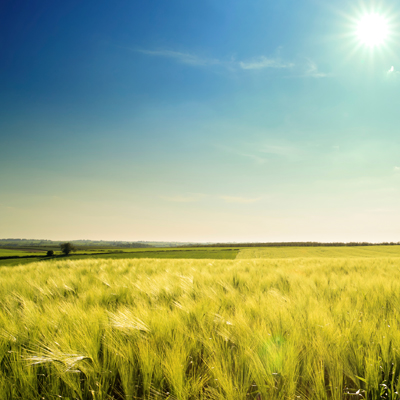At a glance
- Dates2005 – continuing
- SponsorBiological and Biotechnical Sciences Research Council (BBSRC), National Environmental Research Council (NERC).
- FundedApprox £4 million
- PartnersThese projects are led by Cranfield.
Current and recent projects
- Mechanisms and genetics of iron toxicity tolerance in African rice (BBSRC BB/R020388/1)
- Metal contamination of rice supplies in Asia (BBSRC BB/ P02274X/1)
- Long-lived Radionuclides in the Surface Environment (LO-RISE) (NERC NE/D012848/1)
- Rice germplasm for high grain Zn content and tolerance of Zn deficient soils. (BBSRC BB/J011584/1).
- Modelling integrative behaviour of soil-plant systems: plant uptake of strongly-sorbed solutes (BBSRC BB/C518014/1).
Publications
Darmovzalova J., Boghi A., Otten W., Eades, L., Roose T. & Kirk G.J.D. (2020) Uranium diffusion and time-dependent adsorption-desorption in soil: a model and experimental testing of the model. Eur. J. Soil Sci. 71, 215–225. doi:10.1111/ejss.12814.
Kirk G.J.D., Boghi A., Affholder M.C., Keyes S.D., Heppell J. & Roose T. (2019) Soil carbon dioxide venting through rice roots. Plant Cell Environ. 42, 3197–320. doi:10.1111/pce.13638.
Goloran J.B., Johnson-Beebout S.E., Morete M.J., Impa S.M., Kirk G.J.D. & Wissuwa M. (2019) Grain Zn concentrations and yield of Zn-biofortified and Zn-efficient rice genotypes under contrasting growth conditions. Field Crops Res. 234, 26–32 doi:10.1016/j.fcr.2019.01.011.
Boghi A., Roose T. & Kirk G.J.D. (2018) A model of uranium uptake by plant roots allowing for root-induced changes in the soil. Environ. Sci. Technol. 52, 3536–3545. doi:10.1021/acs.est.7b06136.
Affholder M.C., Weiss, D.J., Wissuwa M., Johnson-Beebout S. & Kirk G.J.D. (2017) Soil CO2 venting as one of the mechanisms for tolerance of Zn deficiency by rice in flooded soils. Plant Cell Environ. 40, 3018–3030. doi:10.1111/pce.13069.
Marković T., Manzoor S., Williams E., Kirk G.J.D., Vilar R.& Weiss D.J. (2017) Experimental determination of equilibrium zinc isotopic fractionation in complexes with the phytosiderophore 2’-deoxymugeneic acid and its structural analogues, and implications for plant uptake mechanisms. Environ. Sci. Technol. 58, 98–107. doi:10.1021/acs.est.6b00566.
Masum S.A., Kirk G.J.D., Daly K.R. & Roose T. (2016) The effect of non-uniform distribution of sorbing phases on solute transport in soil. Eur. J. Soil Sci. 67, 514–522. doi:10.1111/ejss.12353.
Mori A., Kirk G.J.D., Lee J.S., Morete M.J., Nanda A.K., Johnson-Beebout S.E. & Wissuwa M. (2016) Rice genotype differences in tolerance of zinc-deficient soils: evidence for the importance of root-induced changes in the rhizosphere. Front. Plant Sci. 6, 1160. doi:10.3389/fpls.2015.01160
Izquierdo M., Impa S.M., Johnson-Beebout S.E., Weiss D.J. & Kirk G J.D. (2016) Measuring isotopically-exchangeable Zn in submerged Zn-deficient rice soils. Eur. J. Soil Sci. 67, 51–59. doi:10.1111/ejss.12303.
Lloyd D., Ritz K., Paterson E. & Kirk G.J.D. (2016) Effects of soil type and composition of rhizodeposits on rhizosphere priming phenomena. Soil Biol. Biochem. 103, 512–521. doi:10.1016/j.soilbio.2016.10.002.


